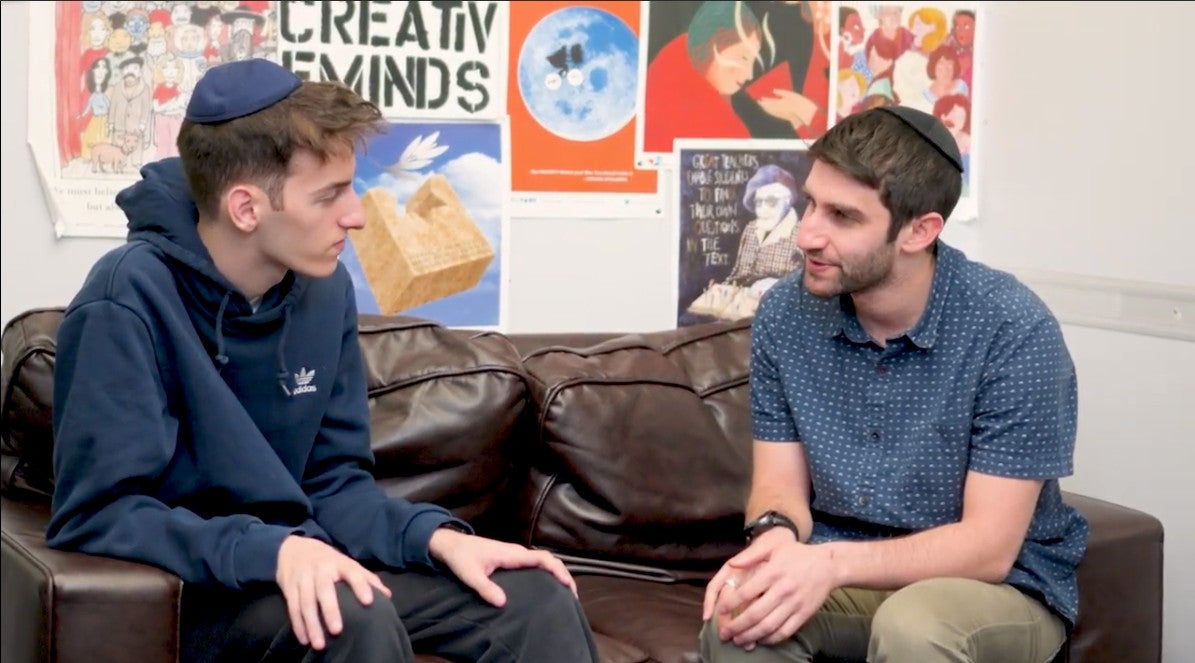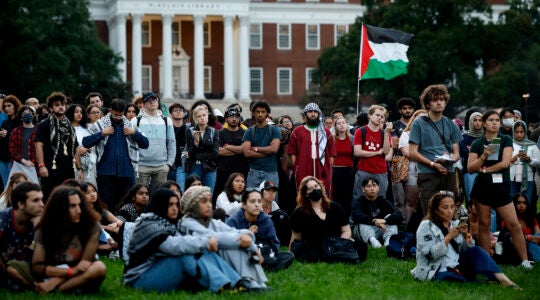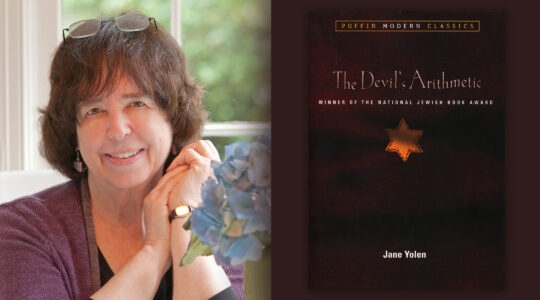Financial problems and stress almost forced Benjamin S. to drop out of college last year.
“Some days I just wouldn’t eat because I didn’t have any cash on me,” said Benjamin, a student at Baruch College in New York who asked that his full name not be used to protect his privacy.
But thanks to a program at the Hillel at Baruch and other schools in the City University of New York system, Benjamin received food assistance and mental health treatment to manage his stresses and stay in school. Now he’s on track to graduate in December with a degree in marketing analytics, and he got help finding a job from a career counselor placed at CUNY Hillels by funders of the program, including UJA-Federation of New York and several major foundations.
Benjamin is one of many Jewish students in New York to receive such help through a strategic partnership between UJA and Hillel. The program, begun in 2022, provides funding for Hillels to hire social workers on-site to help Jewish students and connect them to a range of newly available services ranging from mental health and wellness, access to a kosher food pantry, academic and career counseling, and cash assistance.
The idea is to turn Hillels at CUNY’s schools, whose 16,000 Jewish students are almost all commuters, into hubs not just for Jewish life but also for essential assistance Jewish students need to succeed at college.
Many of the students accessing the help at these Hillel Hubs are the first in their families to attend college. They come from low-income backgrounds and immigrant families and may be dealing with food insecurity and other basic problems that most college students don’t have to worry about.
“UJA is uniquely positioned to bring together Hillels, our social service partners, and other community institutions in ways no one else can,” said Eric S. Goldstein, CEO of UJA-Federation. “By investing in Hillel Hubs, we’re modeling a new way to engage commuter students in Jewish life that is both innovative and scalable.”
The holistic approach to helping CUNY’s Jewish students include serving food at virtually every campus event. All of this goes far beyond Hillel’s traditional mission of providing Jewish experiences for students.
“It’s a whole new Hillel,” said Jenna Citron, director of Hillel at Queens College, which serves 6,000 Jewish students across the borough. “We can do more with more students.”
The program has its origins in a 2019 report commissioned by UJA that found that Jewish students at CUNY, which has the largest number of Jewish students in the country, had a host of unmet needs. About 44% of Jewish students responding to a survey said they suffered from food insecurity. A second needs assessment is being launched later this year to determine how needs have evolved.
In 2021, the Jim Joseph Foundation and the Charles and Lynn Schusterman Family Philanthropies provided funding to start the program, which focused on creating Hillel Hubs at key CUNY campuses. Since then many other funders have joined.
In addition to funding social workers at CUNY’s main campuses, UJA brought in several partners in its network: Commonpoint, a social service agency, provides career counseling and case management. Met Council on Jewish Poverty connects students to food assistance. The Jewish Board of Family and Children’s Services offers mental health support.
By centralizing all of these resources at Hillel, students can get all the help they need in one place, reducing the program’s cost and increasing its impact, said Danielle Ellman, Commonpoint’s CEO.
“When people are struggling with having their needs met, just finding the resources is exhausting,” she noted.
The demographic profile of Jewish students who attend CUNY colleges is different than the typical American Jewish college student. CUNY students are more likely to be Orthodox, and many come from families that immigrated to the United States from the former Soviet Union, Syria or Iran. Some of these families are on uneven economic footing.
“We are still trying to stabilize,” said student Ernest Rafailov, whose family immigrated from Azerbaijan and has eight people living under one roof. He said his older relatives have trouble finding jobs because they don’t speak English. Rafailov earned his bachelor’s degree from Baruch and is now a graduate student there.
Many CUNY students also have family caretaking or financial obligations.
“They’re pulled in a lot more directions than traditional students,” said Citron, who works with Jewish students from two other colleges in addition to Queens College. “When our students are working, it’s because they’re putting money back into the family pot.”
The 2019 report also found that many Jewish students were suffering from mental health challenges. The COVID pandemic and campus tensions related to Israel’s response to the Oct. 7 attacks only exacerbated student stresses.
“If you wear a kippah or a long skirt, or if you are in the classroom and someone says something—inside of you every Jewish student feels anxious,” said Ilya Bratman, the Hillel director at Baruch, which has 2,000 Jewish students.
To deal with stigmas among students related to mental health treatment, the Hillel at Baruch avoided using the word “therapy,” instead employing words like “mentor” and “advice.”
“If you meet with a mentor for half an hour a week for coffee, that’s OK,” explained Bratman, who also works with 3,000 Jewish students at several other CUNY campuses in Manhattan.
Underscoring the need, the schedules of the six social work interns working at Baruch were full within the first two weeks of school this fall, according to Bratman.
Raphael Cooper, a senior social worker at Baruch’s Hillel, said the Hillel Hub program should be emulated at other commuter schools — and at more traditional residential colleges.
“It really is a model,” Cooper said, “because it meets students where they’re at. It’s about getting the support that Jewish students need.”
JTA has documented Jewish history in real-time for over a century. Keep our journalism strong by joining us in supporting independent, award-winning reporting.
This story was sponsored by and produced in partnership with UJA-Federation of New York, which cares for Jews everywhere and New Yorkers of all backgrounds, responds to crises close to home and far away, and shapes the Jewish future. This article was produced by JTA's native content team.
More from UJA-Federation of New York




